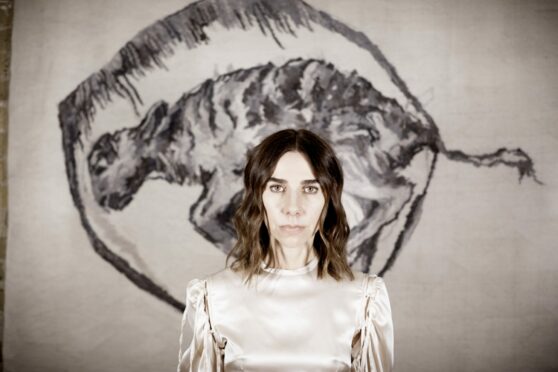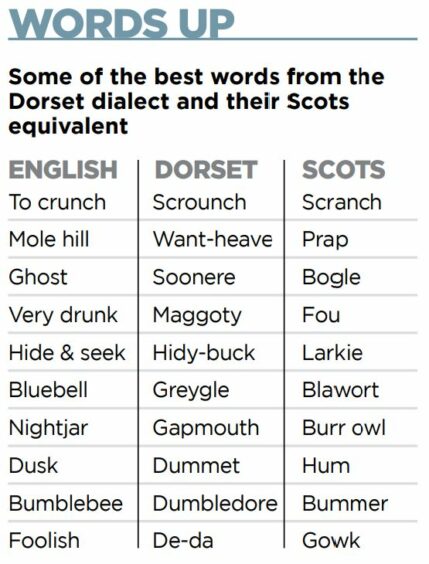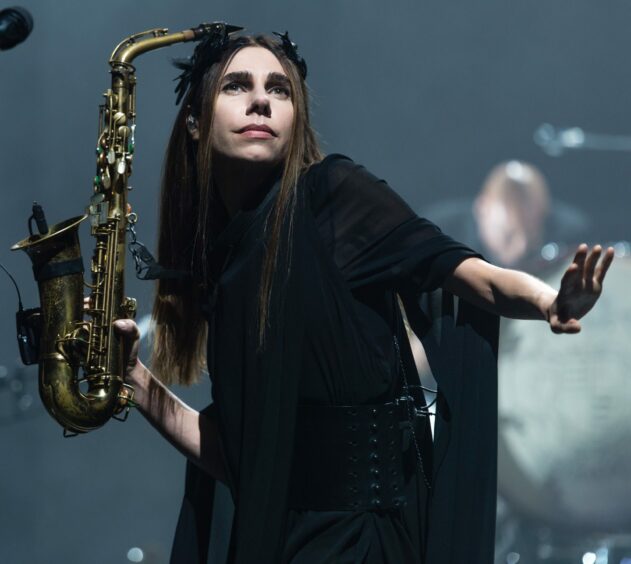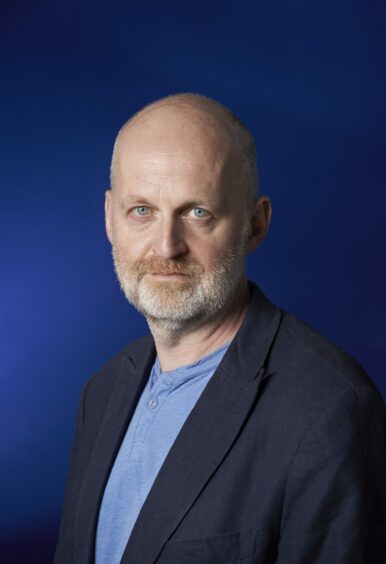
“People think I live in a cave and eat children,” says PJ Harvey, her West Country burr dissolving into a giggle.
It’s sort of no wonder, Polly Jean. For three decades, the enigmatic rock siren has produced album after album of fascinating and wildly varied music, winning the Mercury Prize twice; the only artist to do so.
In that time she’s shied away from the spotlight, eschewing interviews and letting her haunting albums largely do the talking. You can perhaps see why the mysterious image that cracks her up, the one of an ethereal musical goddess who only takes breaks from making music to holiday in the hollow of a haunted tree, has been hard to shake.
“When I was younger, it used to upset me because I just couldn’t work out why people had this opinion of me that just wouldn’t shift no matter what,” she ponders, speaking from her home in Dorset. “And now, I don’t mind. I just accept it. I think it’s gotten better, in particular as I’ve branched into other creative forms. It’s more in perspective now than it ever has been.”
Her latest work may not shift the dial on people’s perception of her. Orlam is a novel-in-verse telling the dark coming-of-age tale of a Dorset farmgirl exploring a magical forest via her guide and protector in the form of a lamb’s eyeball. The collection of poems is at times unsettling, bawdy and darkly humorous; much like her music. Yet where albums like 2011’s Let England Shake, 2016’s The Hope Six Demolition Project, or her previous collection of poems, The Hollow Of The Hand, dealt with grand political themes and the impact of war, Orlam reads as a deeply personal tale, albeit one set in the hinterlands between reality and dream, and youth and adulthood.
“This time I felt the need to make a change of scale more than anything. I think I wanted to come back to something smaller,” she says. “One person, one wood, and to go inside rather than outside.
“Although it draws a lot on my experience, and my childhood in the countryside, it’s not directly linked to that. That was just a starting point for the imagination. Like any writer, you start with a nugget of experience and then you use your imagination and it develops into something way beyond your experience.”
This week, as well as doing a rare interview, Harvey hopped on a train to Edinburgh’s Central Hall for a live conversation with her friend and mentor – the Dundee poet and academic, Don Paterson. In 2014, Harvey began to attend poetry classes, and Paterson, a two-time TS Eliot Award-winning poet, was a guest lecturer. Harvey had no idea if Paterson knew who she was, and took his suggestion to send him some poetry as politeness. Two weeks later he contacted her.
“He said, ‘no, I really did want to see some of your poems’,” adds Harvey. “and I said, ‘oh gosh yeah’.
“We ended up editing The Hollow Of The Hand together, and a great working relationship and friendship grew out of that. I asked Don about what I should do next. I really wanted to study poetry as I didn’t know how to do it – should I go back to university, what should I do? He offered me a mentorship. I was dumbfounded because he only takes on two people every few years. I just couldn’t believe that.”
The unlikely double act of pop icon and Scottish academic thrived, and Harvey credits Paterson for coaxing Orlam out of her. It may seem hard to believe but Harvey, one of the boldest voices in music, lacked confidence with verse.
“Don encouraged me to be as bold with poetry as I am in songwriting, and that was something I really remembered him giving me, because I think I was a timid poet,” she says. “I felt, ‘Oh, I’m not worthy. I’m not a poet’ and I didn’t approach it with the same bold confidence that I do with song.
“He got me to be that bold, he told me to find new ground and to say anything I want to say.”
Conjuring with imagery of her youth growing up on a farm, and of ancient West Country rituals, Orlam is written in Dorset dialect, the first book to use the language in a century.
Each poem is mirrored with a translation into more recognisable standard English, giving the reader a route to understanding the words she uses, like zedgemocks (tufts of grass) and shabby mothers (ewes). “I did wonder who on Earth would be interested,” says Harvey, when it came to writing these mostly forgotten words. “As the book began to take shape and as Don and I decided upon doing the facing-page translation of English then it seemed much more accessible.
“What I’ve noticed in people that I’ve talked to that have read the book is that, quite quickly, you just can read the dialect. It goes into your system and you start to know what the words mean. Often these words carry so much sense in the sound. You kind of know what it means.
“I think of it a bit like Shakespeare; if I really try and understand Shakespeare, I don’t get it at all. But if I don’t, if I stop and just let the language pour over me, I know exactly what’s going on.”
Paterson and Harvey became, as they worked together, thick as inkle weavers, as she’d say in the Dorset dialect. Their close friendship is such that, when I ask what she’s most looking forward to visiting in Edinburgh, she names only him.
“The brilliance of Don as a teacher I find is that, when he’s teaching you about a specific technique, whether it’s about metonymy, or metaphor, dramatic monologue, or whatever he’s talking about, it often comes with a joke,” she says. “And I remember it all because then I remember the jokes that come with it.”
Harvey describes herself as private, and has said she prefers making music than speaking to interviewers. Yet she’s warm and engaging. And, in another devastating blow to her image as an otherworldly rock and roll sorceress, Harvey reveals herself to be a big stand-up comedy fan.
Recently she went to see her favourite comedian, creator of The Office and Afterlife, Ricky Gervais, perform and was left breathless with laughter.
There’s comedy and bawdy gags in Orlam but, at times, the world for the teenage protagonist Ira seems like a frightening place. Given her previous songs and poems tackle things like war and geopolitics, you wonder if Harvey thinks the world is a scarier place for young people than when she was Ira’s age.
She says: “I’m speaking as a 52-year-old woman. It’s hard for me to put myself in the position of a nine-year-old today.
“But I can imagine that maybe I would be aware of climate change and that might be frightening. Maybe I’d be thinking that the world was going to end which I guess we do as children when you first realise about death and that things die.
“But if I’d asked my grandmother this she would have felt like the world was probably always been frightening. I remember talking about when televisions and telephones first appeared and she was sort of terrified at what was happening. It’s all contextual, isn’t it?”
Harvey is about to head for a walk around the fields, tramping over what she might call tree-tears and twiddicks and vuzzen.
Her poetry about the haunted Gore Wood conjures vivid imagery, enough maybe to lend itself to other types of art. Does she hope it might become something else, like a movie?
“I really hope it does develop in something,” she adds. “I would be so happy if someone wanted to turn it into a film or theatre play or something like that, because I think it does lend itself to something, visually, so strongly. I see a whole world being created out of it. I don’t have plans to at this stage but I’d be so open to that. Hopefully in my lifetime.”
The dialect is beautiful. We must protect our language
PJ Harvey’s Orlam is the first book in the Dorset dialect for 100 years, which she wrote under the guidance of Scottish poet Don Paterson.
For Harvey, dialects like Dorset should be treasured rather than allowed to die out.
She said: “It was so interesting for me to learn the Dorset dialect and study it like one would study a foreign language and I learned it until it become part of my system.
“But it naturally became part of my system because I’m from here.
“To think of the beauty of the words…you know, it would be such a shame for them to die away completely. I think it’s wonderful to keep a record of where our language has come from. I treasure it.”


Enjoy the convenience of having The Sunday Post delivered as a digital ePaper straight to your smartphone, tablet or computer.
Subscribe for only £5.49 a month and enjoy all the benefits of the printed paper as a digital replica.
Subscribe
